Home » Green lights for the TV industry: Media industry committed to sustainability in production, distribution and devices
Green lights for the TV industry: Media industry committed to sustainability in production, distribution and devices
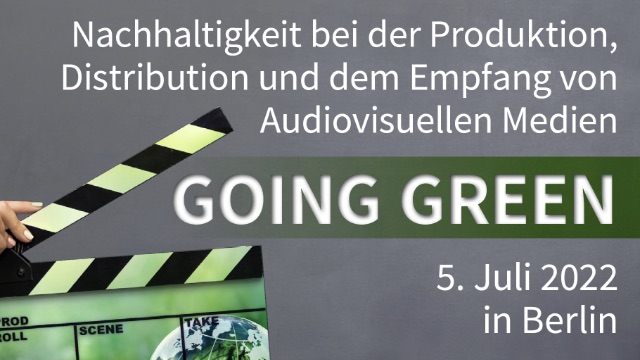
Frankfurt, 06 July 2022. Sustainability is becoming increasingly important in the media industry. At the industry event "Going Green" of Deutsche TV-Plattform on 5 July 2022 in Berlin, industry experts discussed how the production, distribution and reception of audiovisual media content can be designed to be as environmentally friendly as possible. Conclusion: In content production, measures for the reduction of CO2 are already being evaluated in a targeted manner using concrete criteria. To this end, initiatives such as the Green Shooting working group define uniform minimum ecological standards. On the distribution side, however, the data situation is still patchy; there is a lack of reliable data for the evaluation of CO2 reduction measures for the various distribution channels. The appliance industry is already operating in a tight corset due to numerous legal regulations, especially with regard to eco-design requirements, and will be confronted with further challenges in terms of sustainability in the future due to new EU regulatory packages.
Andre Prahl, Chairman of Deutsche TV-Plattform: "We have seen how complex and interlinked the topic is across the value chain. An important learning is therefore that we need even more precise data and measurements, especially in distribution, in order to be able to make sensible recommendations for improving energy efficiency. We will take this and numerous other impulses from the event into the working groups of the TV Platform. Sustainability has the potential to become a central topic on our agenda."
SUSTAINABILITY IN CONTENT PRODUCTION
"Sustainability is the action principle of the current times," said Marie-Fee Taube, Director Sustainability / Corporate Strategy & Development, RTL Germany, in her presentation on sustainability in content production. She said the TV and film industry had jointly recognized and accepted responsibility. This is demonstrated above all by the dialog in the Green Shooting working group - an association of German producers, broadcasters, film funders and associations. The common goal: to make productions as environmentally and climate-friendly as possible and to minimize CO2 emissions. The latest milestone is the commitment to common minimum ecological standards (ÖMS), which will be recognized with the uniform "green motion" label if they are passed. On the basis of the ÖMS, emissions could already be reduced by 50 percent as a rule. "Green Productions is an overall task for the industry - not abruptly, but gradually. We are striving for long-term change with Green Productions," Taube said. In the subsequent discussion with Michael Becker, Head of Scenic Production Commissioned Productions & Sustainability, SWR, Jochen Siegle, Managing Partner, momentifilm, it became apparent that there is great potential for savings, especially in the area of logistics (mobility, travel, transport) as well as energy.
SUSTAINABILITY IN CONTENT DISTRIBUTION Potential savings in video streaming are being jointly investigated by T-Labs Deutsche Telekom and Fraunhofer FOKUS. Peter Pogrzeba (Deutsche Telekom) presented the latest results. The distribution network tends to account for the largest share of energy consumption in the streaming chain (25-35%). The resolution of the signal also plays an important role. At higher streaming resolution (UHD), power consumption increases drastically (up to three times compared to HD), he said. "Overall, however, there is currently no detailed data on power consumption for video streaming in the network," Pogrzeba said. The subsequent panel discussion with Michael Pausch, head of broadcast distribution and frequency management, Bayerischer Rundfunk, and Holger Kuntz, industry engagement marketing, Akamai Technologies, highlighted that when evaluating linear or non-linear distribution, it comes down to content and the use case for the customer, who is increasingly using content via streaming. Live broadcasts remained the domain of traditional broadcasting, even in terms of energy efficiency.
SUSTAINABILITY IN RECEPTION AND OF DEVICES
Christian Eckert, Bereichsleiter Nachhaltigkeit & Umwelt des ZVEI, dem Verband der Elektro- und Digitalindustrie, gab einen Ausblick auf die Regulierungsvorhaben auf europäischer und nationaler Ebene. Er stellte die Entwicklung heraus vom vormals linearen Ansatz der EU, der bei den jeweiligen Wertschöpfungsschritten wie Produktdesign, Verpackung und Entsorgung ansetzt, zu einem künftig zirkulären Ansatz. Besondere Bedeutung hat für die Geräteindustrie die „Ecodesign for Sustainable Products Regulation“. Dieses Maßnahmenpaket gibt wichtige Impulse für einem schonenderen Umgang mit Ressourcen, mehr Energieeffizienz und damit mehr Klimaschutz sowie Resilienz in Europa. „Die Vielzahl an Nachhaltigkeitsanforderungen darf allerdings nicht zulasten der Produktsicherheit oder -funktionalität gehen“, unterstrich Eckert. In der anschließenden Diskussionsrunde unterstrich Volker Blume, CEO, BLU TEC ONE, dass die Hersteller im Hinblick auf die Energieeffizienz von Fernsehgeräten in den letzten Jahren große Fortschritte erzielt haben – die Geräte noch weiter zu optimieren sei schwierig. Eckert erläuterte, dass die Relevanz des Energielabels für TV-Geräte als Kaufkriterium sinke, da aufgrund neuer Berechnungsmodi nahezu alle Geräte in die gleiche Energieklasse eingestuft würden – was dem Verbraucher keine Orientierung biete. Mit Blick auf das Recycling von Altgeräten zeigte sich Alexander Goldberg, Vorstand, Stiftung Elektro-Altgeräte Register, optimistisch. Der Wissenstand der Verbraucher, wo Endgeräte wie Fernseher, Receiver & Co. entsorgt werden, steige kontinuierlich. Als gemeinsame Stelle der Hersteller informiert die Stiftung ear bundesweit die Verbraucher:innen über die korrekte Entsorgung von elektronischen Altgeräten mit der Kampagne „Plan E“. Elektronische Produkte, die das Ende ihrer Nutzungs- oder Lebenszeit erreicht haben, sind kein Müll, sondern eine Quelle für wiederverwertbare Rohstoffe. Um diese zu sichern, müssen Altgeräte fachgerecht entsorgt werden – für mehr Nachhaltigkeit und eine funktionierende Kreislaufwirtschaft.
Neueste Beiträge
- CE-Branchenkompass Q1 2024: Vier von fünf verkauften Fernsehern sind UHD-TVs
- CE-Branchenkompass Gesamtjahr 2023: Mehr als zwei Drittel aller verkauften Radios empfangen digital
- CE-Branchenkompass Q1-3 2023: Anteil der Fernseher mit Surroundsound legt deutlich zu
- CE Industry Compass 1st Half of 2023: For the First Time, More Than Half of Sold Radios Are DAB+ Capable
- Deutsche TV-Plattform with new board of directors
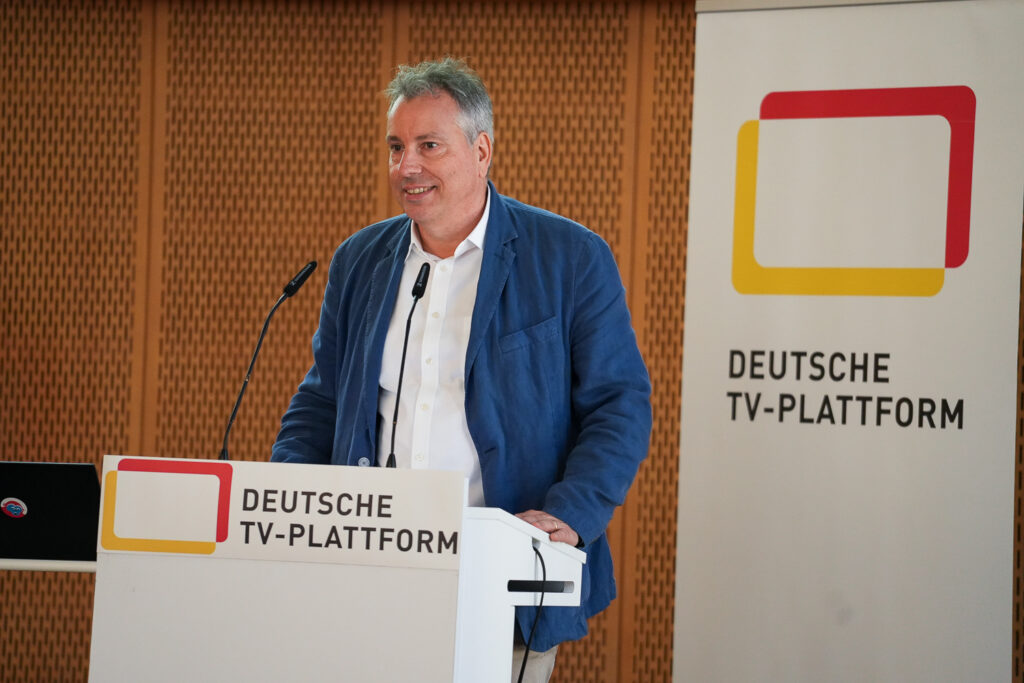
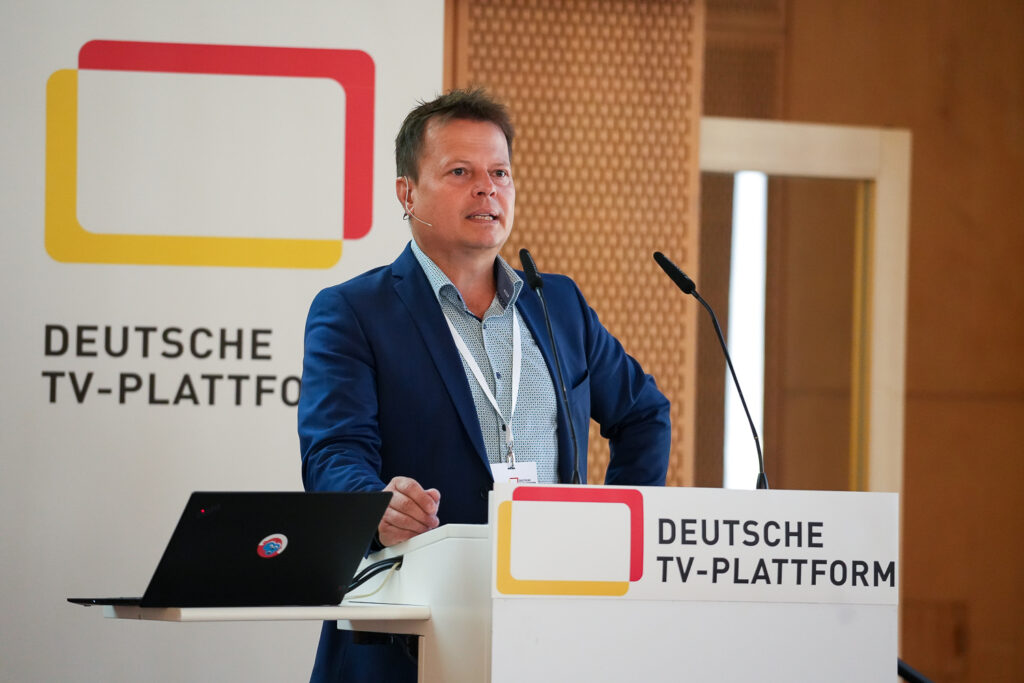
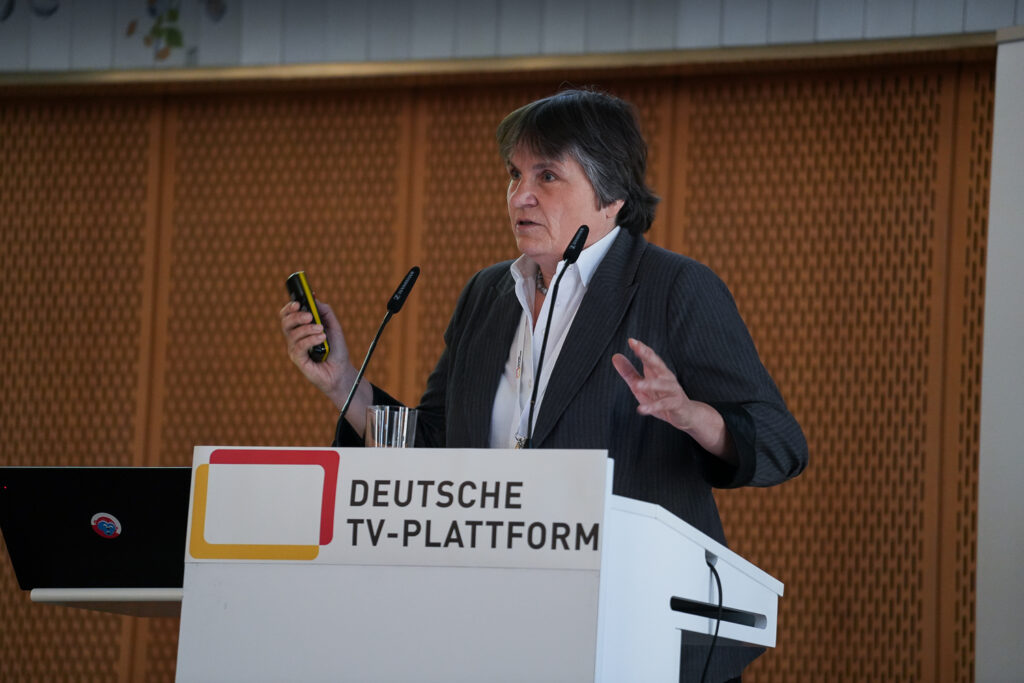
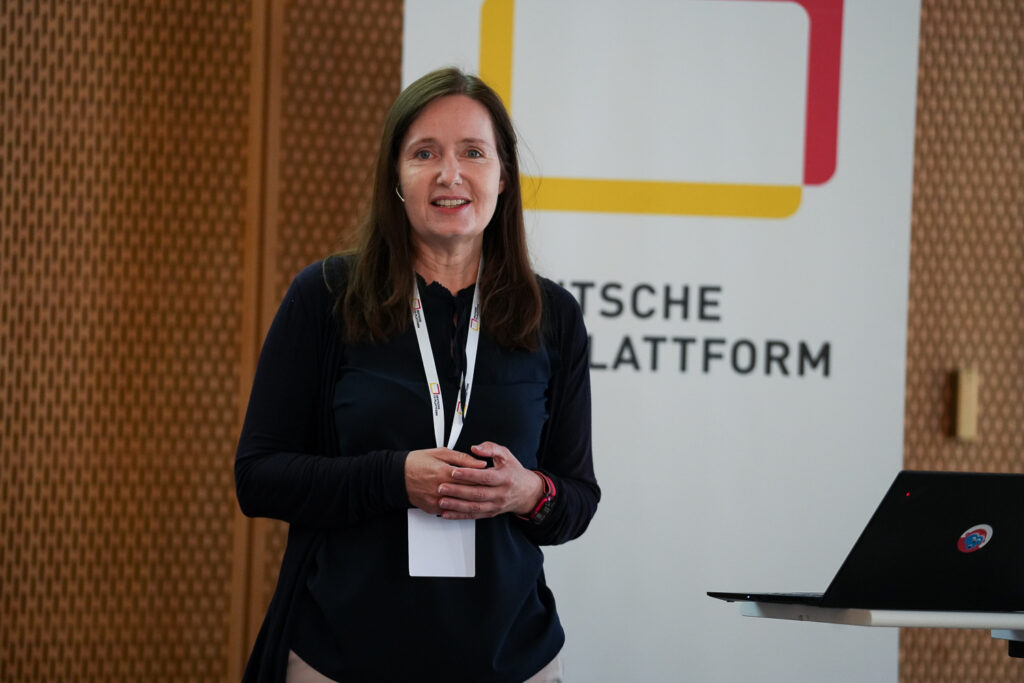
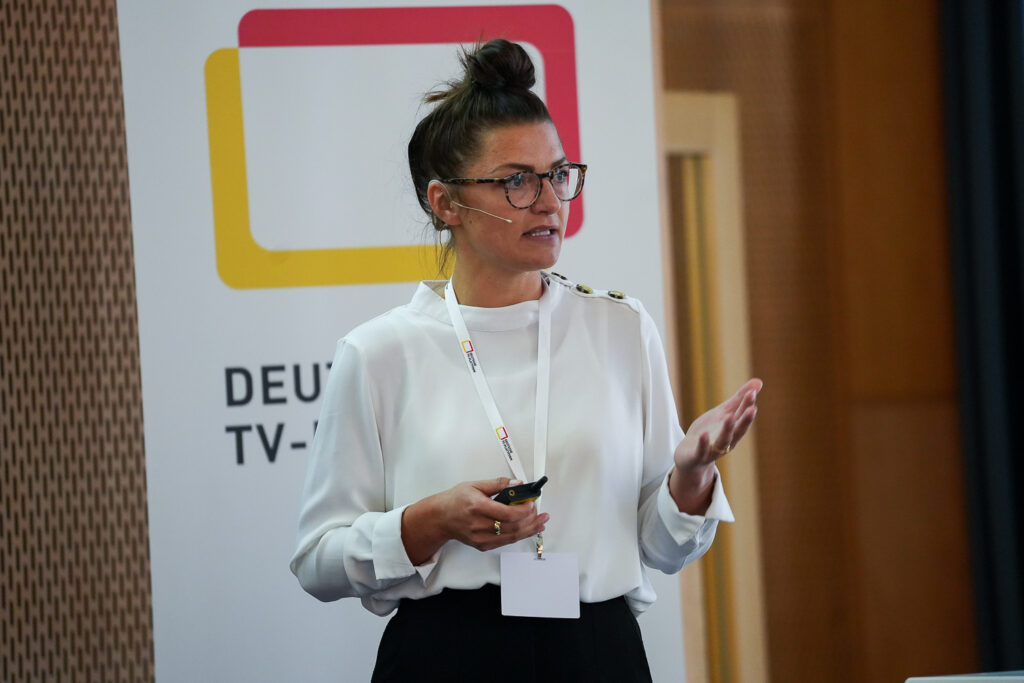
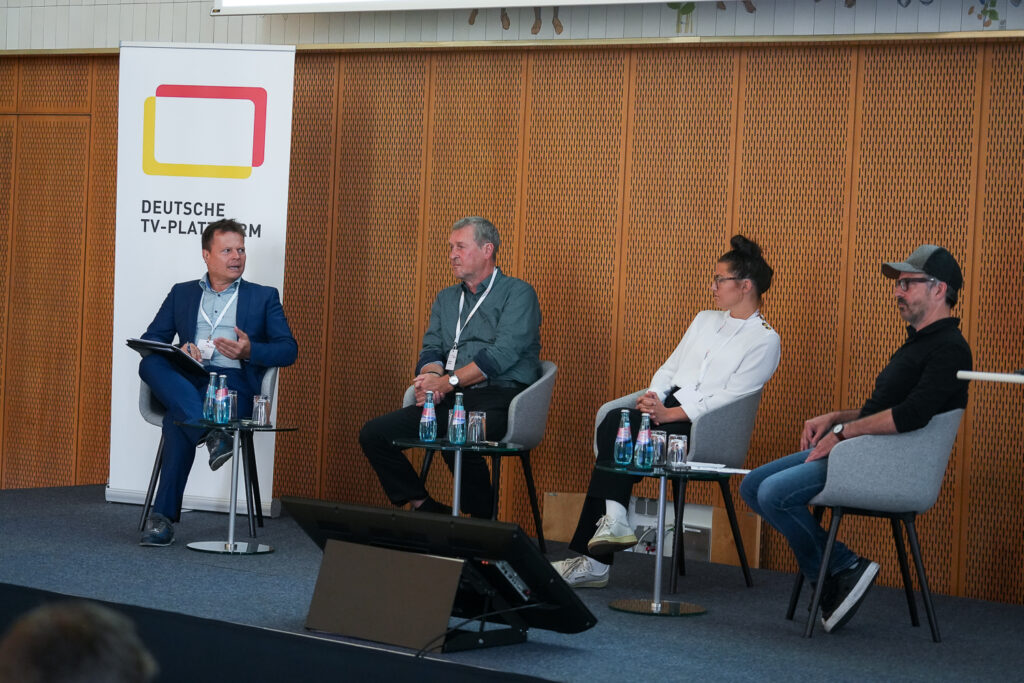
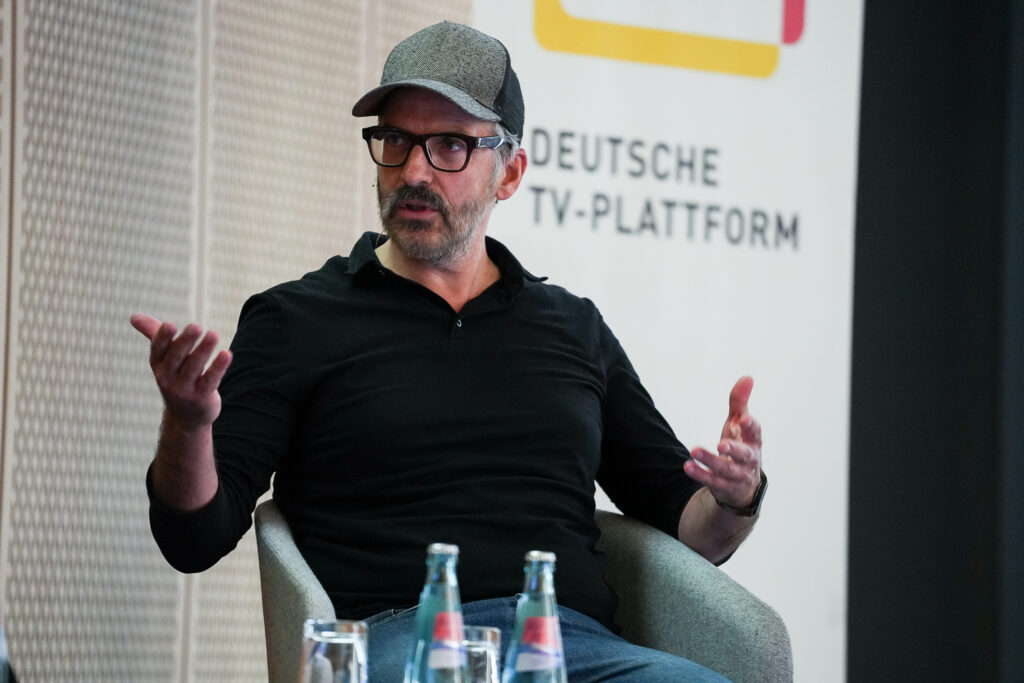
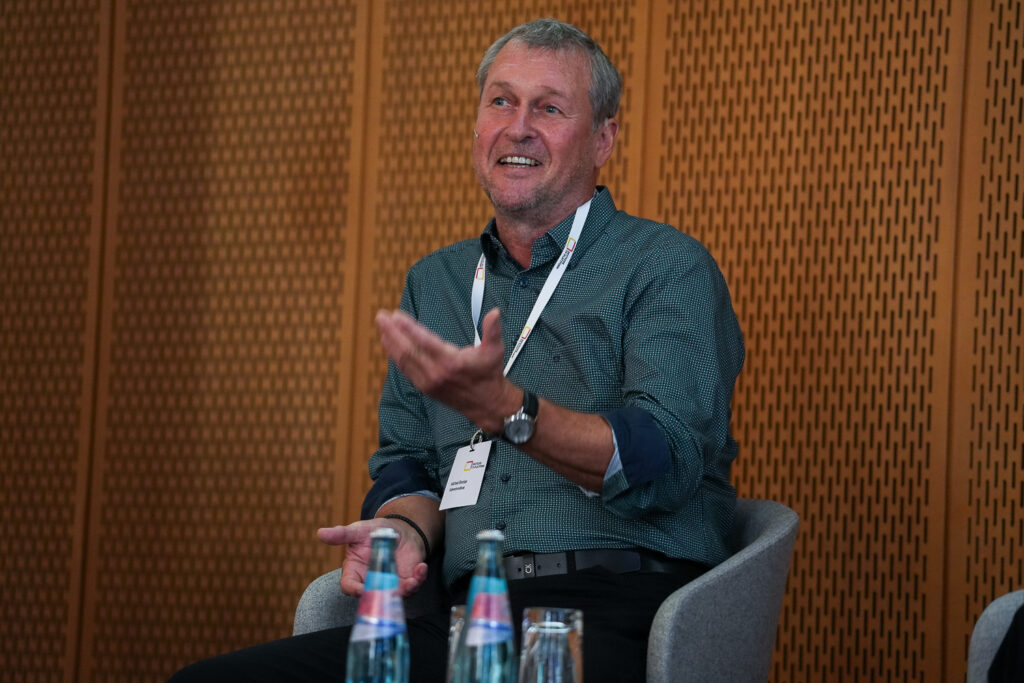
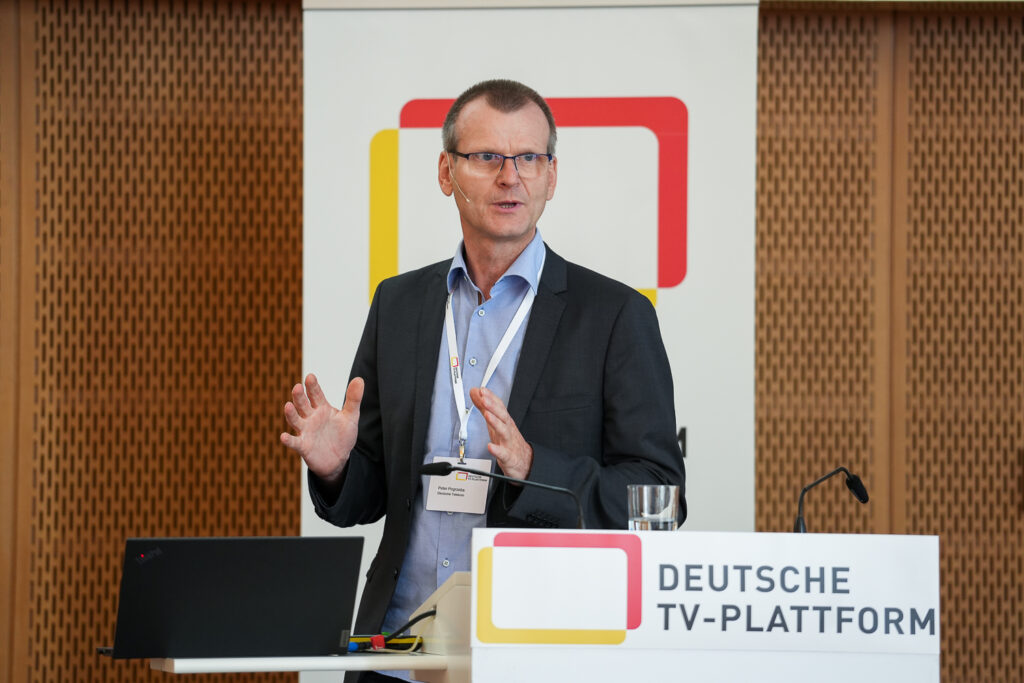
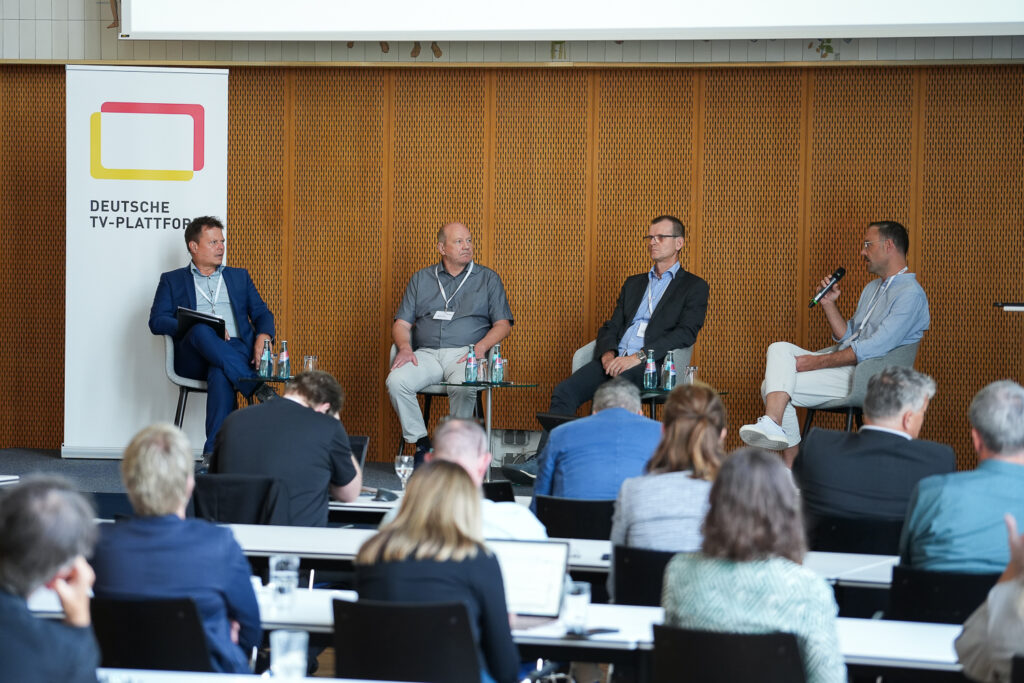
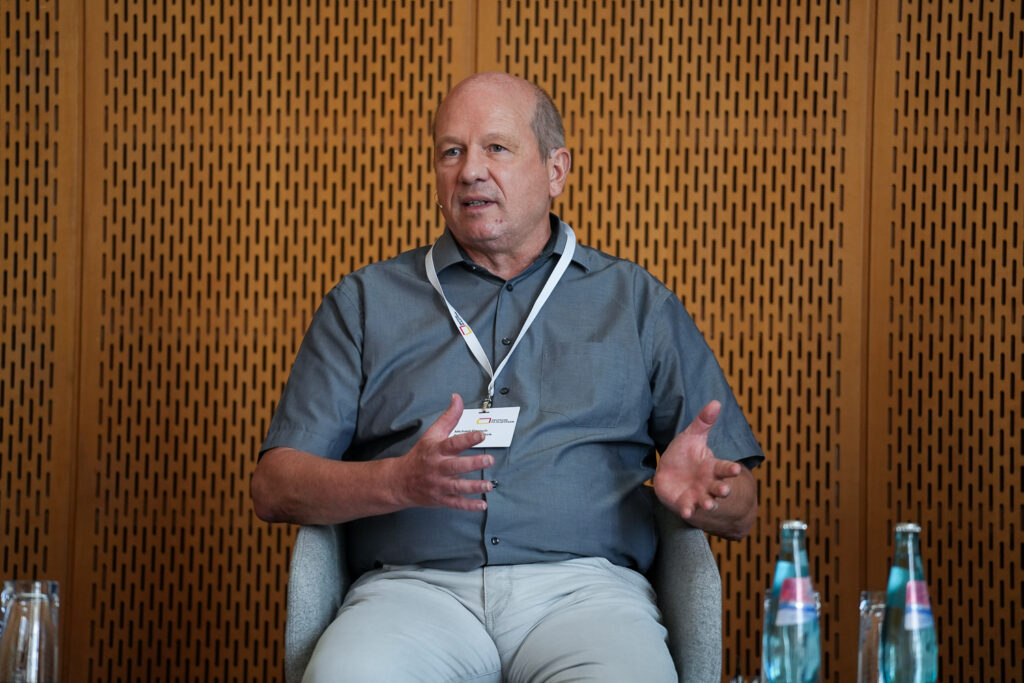
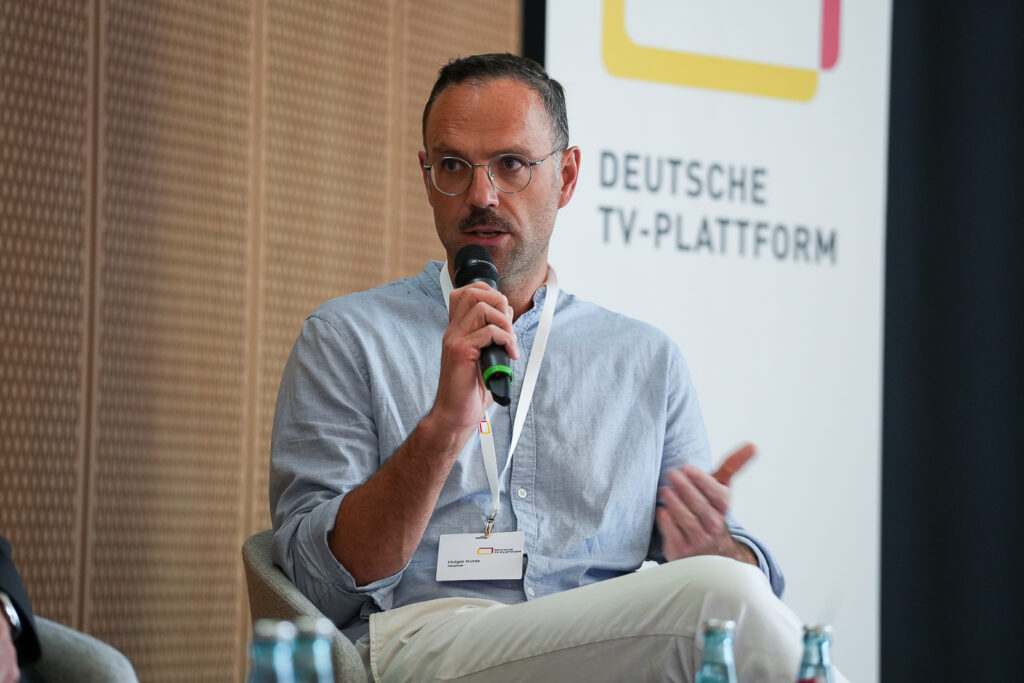
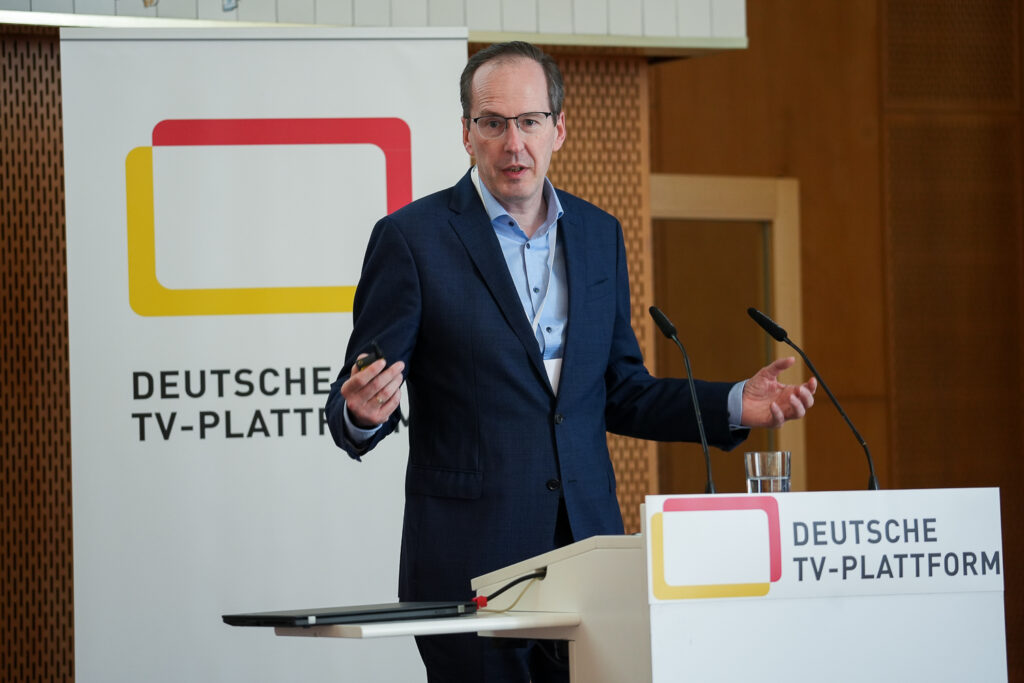
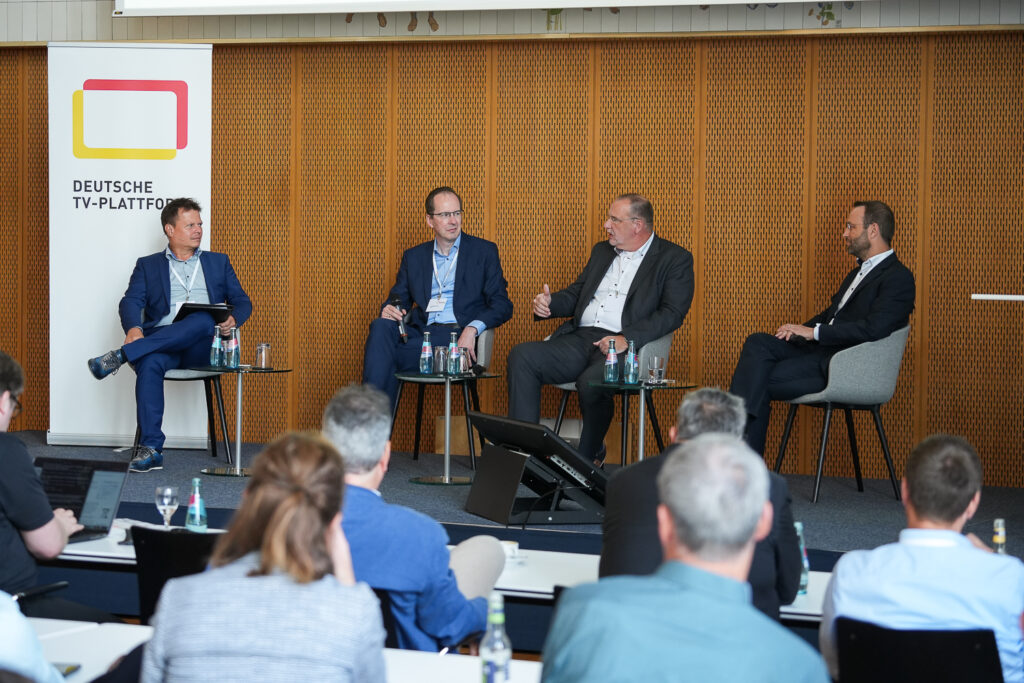
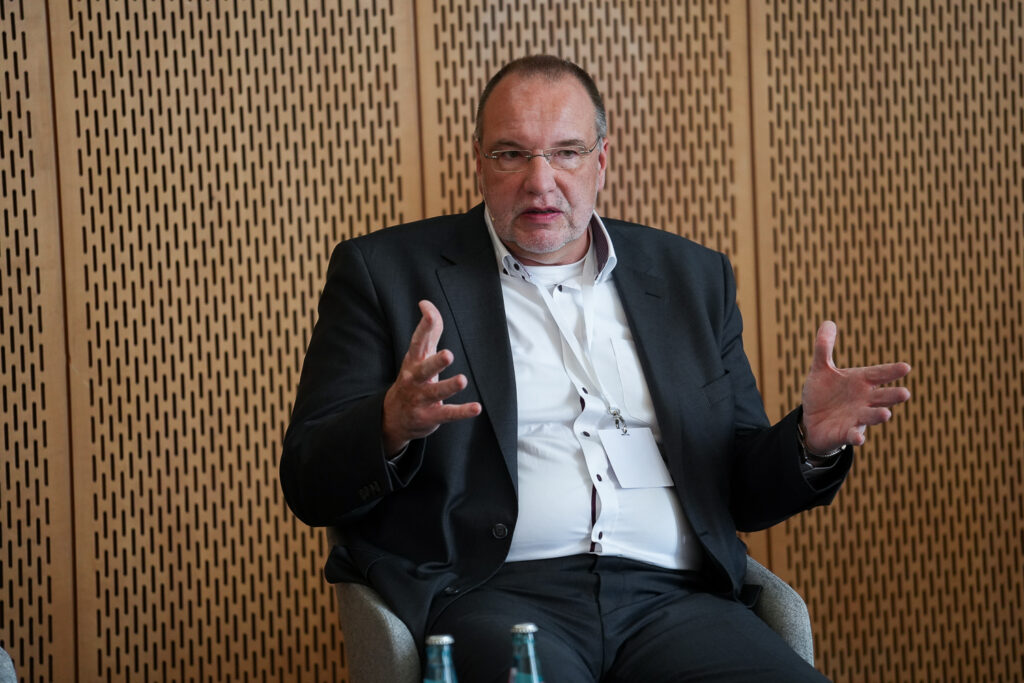
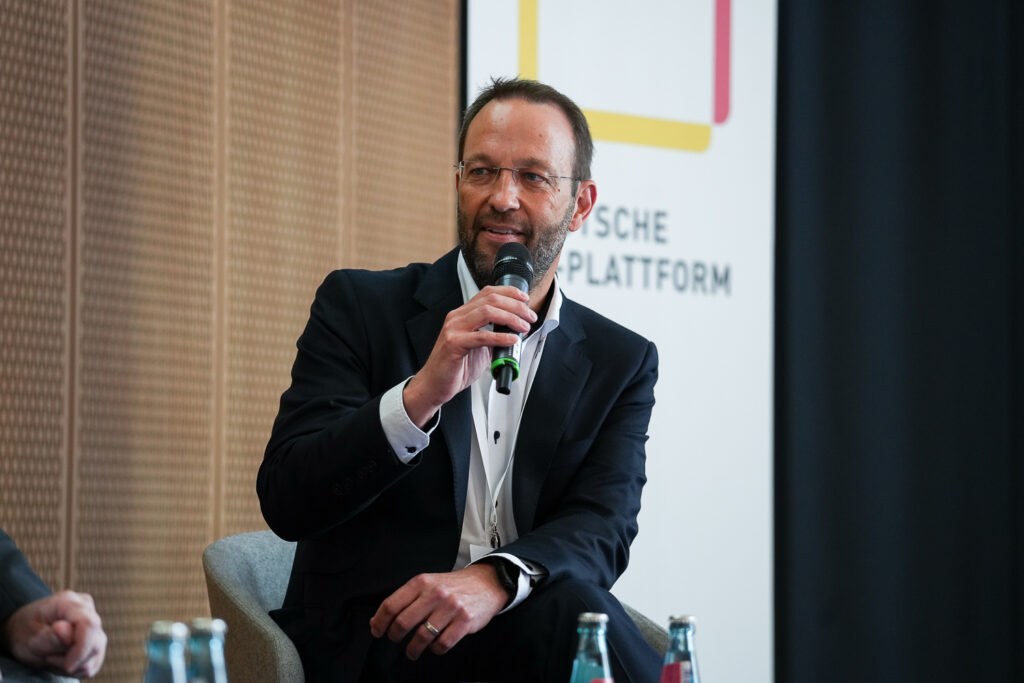
Pictures: Mark Bollhorst, Berlin
